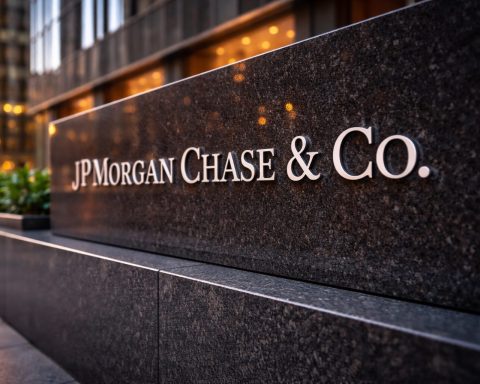- In July 2025, Defense Secretary Pete Hegseth ordered Microsoft to halt China-based engineering on Pentagon cloud work, with Frank Shaw saying no China-based teams will provide technical assistance and the involvement ending immediately.
- Blackstone withdrew from the TikTok US sale bid led by Susquehanna and General Atlantic, a consortium that could have given US owners an 80% stake, as the forced divestment deadline was pushed to Sept. 17.
- On July 21, 2025, India’s Enforcement Directorate summoned Google and Meta executives for questioning in a probe into illicit online betting ads and whether the platforms accepted payments to promote them.
- Nvidia faced scrutiny over resuming H20 exports to China after a House China Committee critique, with stock down about 4%, CEO Jensen Huang signaling an RTX Pro chip for Chinese clients, and a nine-month ramp-up due to a prior ban canceling H20 capacity at TSMC.
- Crypto markets reached a $4 trillion valuation as Bitcoin topped $120,000 and Bernstein forecast a $200,000 Bitcoin price by end-2025, while the U.S. House passed a stablecoin bill and President Trump signed it into law requiring issuers to hold liquid reserves and publish monthly disclosures.
- Netflix shares fell about 4% after a weak-dollar boost to revenue guidance despite a Q2 profit beat, with Netflix also stopping disclosure of subscriber counts and carrying a market value around $517 billion.
- SpaceX launched 24 Starlink satellites on a Falcon 9 rocket, its 88th Falcon 9 launch of 2025, the 14th reuse of the first-stage booster, and the Starlink constellation reaching about 7,965 active satellites in low Earth orbit.
- The European Space Agency’s Invictus program is a €7 million initiative to develop a reusable hypersonic spaceplane capable of Mach 5+ with a plan to test-fly a prototype by 2031.
- Corning Inc. dodged an EU antitrust fine by conceding to drop exclusivity clauses and certain purchasing commitments in its deals with device makers, ending an eight-month investigation.
- Neta and Zeekr were accused of inflating sales by pre-insuring more than 60,000 vehicles sold between January 2023 and March 2024, prompting Beijing to propose a six-month resale ban on new cars and a used-car tracking system.
Microsoft Halts China-Based Support Amid Pentagon Cloud Uproar
Microsoft is restructuring its U.S. military cloud support after revelations it had been using engineers in China on Pentagon projects reuters.com. A ProPublica report prompted U.S. Defense Secretary Pete Hegseth to order a review of all cloud contracts. Microsoft’s Frank Shaw said the company changed its processes “in response to concerns raised… to assure that no China-based engineering teams are providing technical assistance” on Pentagon systems reuters.com. U.S. Senator Tom Cotton blasted the prior practice as a security risk, noting China’s aggressive cyber threats to critical U.S. infrastructure reuters.com. Hegseth vowed that “China will no longer have any involvement whatsoever in our cloud services, effective immediately” reuters.com.
TikTok US Deal in Flux as Blackstone Backs Out
A planned sale of TikTok’s U.S. operations faces new uncertainty after private equity giant Blackstone quit a bidding consortium reuters.com. The investor group – led by Susquehanna and General Atlantic – had emerged as frontrunner to buy TikTok from China’s ByteDance under a Trump-orchestrated plan, potentially giving U.S. owners an 80% stake reuters.com. Blackstone’s exit comes amid repeated delays in the forced divestment deadline, now pushed to Sept. 17 after President Trump’s third extension reuters.com. Some U.S. lawmakers accuse the administration of “flouting the law” by allowing extensions and warn that Chinese ownership of TikTok poses national security risks reuters.com. The protracted talks have even become entangled in U.S.-China trade negotiations reuters.com, underscoring the deal’s geopolitical complexity. TikTok declined to comment on Blackstone’s withdrawal reuters.com.
India Summons Google & Meta in Online Betting Probe
India’s financial crime agency has summoned top executives of Google and Meta for questioning on July 21 as part of a crackdown on illicit online betting apps reuters.com. The Enforcement Directorate is investigating whether these tech platforms enabled promotion of illegal betting services through ads, despite a government advisory against all gambling advertisements reuters.com reuters.com. Officials suspect the companies may have accepted ad payments from betting apps, facilitating their reach to millions of users. Both Google and Meta declined immediate comment on the summons reuters.com. India’s government has warned that betting and gambling pose “significant financial and socio-economic risks for consumers, especially youth and children” reuters.com. The probe signals New Delhi’s intent to hold Big Tech accountable for content that could abet money laundering and consumer harm.
U.S.-China Chip Showdown: Nvidia’s H20 Exports Draw Fire
A political storm erupted over Nvidia’s plans to resume sales of its advanced H20 chips to China. House China Committee Chair John Moolenaar slammed the Commerce Department’s decision to ease an export ban, calling it “the right call” to have originally blocked H20 shipments reuters.com reuters.com. In a letter to Commerce Secretary Howard Lutnick, Moolenaar warned that allowing these high-end chips into Chinese hands could boost Beijing’s AI military programs and erode America’s tech edge reuters.com. “We can’t let the CCP use American chips to train AI models that will power its military, censor its people, and undercut American innovation,” he wrote reuters.com. Nvidia, whose stock dipped 4% Friday after the criticism, defended the move. “America wins when the world builds on U.S. technology. The government made the best decision for America, promoting U.S. technology leadership, economic growth and national security,” an Nvidia spokesperson said reuters.com. Meanwhile, Nvidia’s attempt to reboot chip deliveries faces practical hurdles: a prior U.S. ban forced it to cancel H20 production capacity at TSMC, and ramping back up could take nine months reuters.com reuters.com. CEO Jensen Huang noted in Beijing that Nvidia is even developing a new export-compliant chip (the “RTX Pro”) for Chinese clients reuters.com, highlighting the lengths to navigate U.S. trade curbs.
Crypto Goes Mainstream: Stablecoin Law & $4 Trillion Milestone
Cryptocurrency markets surged to a $4 trillion valuation this week, underscoring how far the industry has come from its fringe origins reuters.com. Bitcoin blew past $120,000 to record highs, and analysts at Bernstein even forecast it could reach $200,000 by end-2025 reuters.com reuters.com. Driving the optimism was a wave of regulatory clarity: on Thursday the U.S. House passed a landmark bill to regulate dollar-pegged stablecoins, and on Friday President Trump signed it into law reuters.com reuters.com. The new law – the first major federal crypto legislation – requires stablecoin issuers to hold liquid reserves and publish monthly disclosures reuters.com reuters.com. “This signing is a massive validation of your hard work and pioneering spirit… It’s good for the dollar and it’s good for the country,” Trump declared at the White House, flanked by crypto entrepreneurs and lawmakers reuters.com. Crypto advocates hailed the move as a green light for mainstream adoption after years in a regulatory grey zone reuters.com reuters.com. “The arrival of the Trump legislation signaled an about-turn in attitudes towards the crypto industry, but legislators are still exercising some caution,” noted Derren Nathan of UK brokerage Hargreaves Lansdown reuters.com. Not everyone is cheering: transparency groups warn the law has loopholes that could turn the U.S. into a haven for illicit finance. “By failing to close known loopholes… Congress has risked making the U.S. financial system a global haven for criminals and adversarial regimes to exploit,” said Scott Greytak of Transparency International, urging tougher safeguards reuters.com. Still, markets responded in kind – Ether jumped to a six-month high, lifting shares of crypto-linked firms like Coinbase and Robinhood to record levels reuters.com. Industry players say clearer rules and the stablecoin boom are fueling a virtuous cycle: “The standout proposition of institutional Ethereum accumulation seems to be stablecoin growth which has been further accelerated by the recent success of Circle’s IPO,” observed Astronaut Capital CIO Matthew Dibb reuters.com. With Congress advancing multiple crypto bills – including frameworks for crypto exchanges and a ban on a U.S. CBDC reuters.com – the once Wild West sector is steadily gaining establishment acceptance and investor influx.
Netflix Stock Stumbles on Weak-Dollar Boost (Not Content)
Netflix shares slid ~4% on Friday after the streaming giant’s latest revenue forecast underwhelmed Wall Street reuters.com. The company’s outlook got a lift primarily from the U.S. dollar’s recent weakness – not a surge of new subscribers – leaving investors unimpressed. Netflix had nearly doubled its stock price over the past year thanks to blockbuster content (e.g. the final season of “Squid Game”) and optimism around its password-sharing crackdown. That set a high bar for earnings. “When your shares are already binge-watched to perfection, the earnings beat needed to be stronger to satisfy expectations,” quipped Michael Ashley Schulman of Running Point Capital reuters.com. Netflix did beat profit estimates for Q2, but executives admitted currency exchange rates accounted for much of the upgraded full-year revenue range reuters.com (now $44.8–$45.2 billion, vs. $43.5–$44.5 billion prior). “Some [investors] sold on the good news and maybe questioned whether the positive FX effect will be there a few quarters down the road,” Schulman added, noting the lack of underlying user growth drivers reuters.com. Netflix’s move to stop reporting subscriber counts – focusing on revenue and profit metrics instead – has also raised eyebrows about its growth trajectory reuters.com. Despite the short-term market reaction, Netflix remains a content heavyweight with a $517 billion valuation (greater than Disney, Comcast, and Warner Bros. combined) reuters.com, giving it ample war chest to invest in new strategies like gaming and live sports to re-ignite demand.
Singapore Sounds Alarm on China-Linked Cyber Spies
Singapore is on high alert for cyber espionage after detecting hacks against its critical infrastructure by a group linked to China. “UNC3886 poses a serious threat to us, and has the potential to undermine our national security. It is going after high value strategic targets, vital infrastructure that delivers essential services,” warned K. Shanmugam, Singapore’s Minister for National Security reuters.com. He disclosed on Friday that authorities are actively responding to incursions attributed to UNC3886, an advanced threat actor that cybersecurity firm Mandiant describes as a “China-nexus espionage group” targeting defense, telecom and tech sectors across the U.S. and Asia reuters.com reuters.com. Singapore did not publicly detail which utilities or agencies were breached, citing security considerations reuters.com. The city-state’s Cyber Security Agency has listed 11 critical sectors – from energy and water to banking and healthcare – and all are now on guard for further intrusions reuters.com. The development comes as regional tensions rise over state-sponsored hacking: just days ago, Reuters reported Chinese hackers had infiltrated Taiwan’s semiconductor industry in a similar campaign reuters.com. Beijing routinely denies conducting cyber-espionage and claims it is a victim of hacking itself reuters.com. Singapore officials, however, are urging heightened defenses, calling the threat “brazen” and backing international efforts to expose and counter nation-backed cyberattacks.
Russia Targets WhatsApp as ‘Security Threat’
Russia may ban Meta’s WhatsApp messaging app, framing it as a security risk amid a broader tech sovereignty push. Anton Gorelkin, a senior lawmaker overseeing internet policy, declared “It’s time for WhatsApp to prepare to leave the Russian market” reuters.com. In a Telegram post, Gorelkin labeled the popular chat app – used by 68% of Russians daily – a “security threat” and suggested it will be added to Moscow’s list of restricted “unfriendly” software reuters.com. The government is touting a state-backed alternative called “MAX”, to be integrated with e-government services, as a homegrown replacement reuters.com reuters.com. President Vladimir Putin last month ordered development of this domestic messenger as part of efforts to reduce reliance on Western tech platforms reuters.com. (Facebook and Instagram were banned in Russia in 2022 and branded “extremist” organizations after the Ukraine invasion reuters.com.) New legislation is also tightening online censorship – this week the Duma approved fines for simply searching content deemed extremist, which now includes Meta’s social networks and many opposition figures reuters.com. Meta (which owns WhatsApp) did not comment on the lawmaker’s remarks reuters.com. If Russia follows through, it would sever tens of millions of users from WhatsApp – further splintering the global internet as authoritarian regimes carve out walled-off tech spheres.
Crypto Exchange Bullish Reveals Losses in IPO Filing
Bullish, a cryptocurrency exchange backed by Peter Thiel, is pressing ahead with a U.S. IPO even after disclosing hefty losses. In an SEC filing on Friday, Bullish reported a net loss of $348.6 million for Q1 2025, a sharp reversal from a $104.8 million profit a year earlier reuters.com reuters.com. The exchange had confidentially filed for an IPO earlier and now joins peers Gemini and Grayscale in plotting U.S. listings reuters.com. Its timing coincides with renewed investor appetite in crypto markets – stablecoin issuer Circle’s blockbuster NYSE debut recently signaled pent-up demand despite last year’s downturn reuters.com. Bullish’s IPO bid is also a comeback attempt: the firm scrapped a SPAC merger in 2022 amid regulatory crackdowns and rising interest rates that chilled crypto financing reuters.com. The revived offering would list Bullish on the NYSE under ticker “BLSH,” with J.P. Morgan, Jefferies, and Citi as underwriters reuters.com. By going public, Bullish aims to bolster its credibility and capital as competition among exchanges intensifies. The IPO market overall has been sluggish due to economic uncertainties (exacerbated by Trump’s tariff policies reuters.com), but crypto firms now see a window reopening – provided they can prove their financials are, well, bullish.
JPMorgan Eyes Private Tech Titans in Research Expansion
JPMorgan Chase is breaking Wall Street convention by launching analyst coverage of high-profile private tech firms before they hit the stock market. The U.S. banking giant recently published its first report on OpenAI – the creator of ChatGPT – and plans to cover other “unicorn” startups like Elon Musk’s SpaceX and TikTok-owner ByteDance reuters.com reuters.com. With nearly 1,500 private companies now valued above $1 billion globally, JPMorgan sees surging client demand for insight into these key players shaping industries reuters.com reuters.com. “Private companies are becoming increasingly relevant to various industries, especially in the new economy space,” explained Hussein Malik, JPMorgan’s head of global research reuters.com. Unlike traditional equity research, these private company reports won’t include earnings forecasts or stock ratings, Malik noted reuters.com. Instead, the goal is to provide deep “structured information and tracking” on big disruptors and their impact, helping institutional investors who are eager to invest pre-IPO reuters.com. In an internal memo, JPMorgan highlighted AI and software as initial focus areas for this service reuters.com. The move underscores how public and private markets are blurring – mega-startups like OpenAI, SpaceX, and ByteDance now rival Fortune 500 firms in scale reuters.com – and banks are adapting by treating them with the same analytical rigor as listed companies. JPMorgan’s push could set a trend on Wall Street, as other brokers race to cater to clients seeking an edge in the next Facebook or Tesla before it goes public.
Corning Dodges EU Fine with Mobile Glass Concessions
Corning Inc., the maker of Gorilla Glass for smartphones, averted a hefty EU antitrust fine by agreeing to change its business practices. European regulators announced Friday that they accepted Corning’s binding concessions, ending an eight-month investigation into anti-competitive behavior reuters.com reuters.com. The U.S. glass giant had been accused of using exclusive agreements with phone manufacturers and glass finishers that squeezed out rival cover-glass suppliers reuters.com. To resolve the case, Corning waived all exclusivity clauses in its deals with device makers and processing companies reuters.com. The European Commission said this move fully addresses its concerns and no fine will be imposed reuters.com reuters.com. Corning also scrapped certain purchasing commitments that were seen as locking in customers reuters.com. The outcome is a win-win: Corning avoids financial penalties and lengthy litigation, while European smartphone makers gain more freedom to source glass components. The Commission noted that Apple is “reportedly” a Corning customer as well reuters.com, though not formally part of the case. This resolution follows a trend of EU regulators accepting behavioral remedies from U.S. tech suppliers to quickly restore competition. It also sends a signal to other dominant tech suppliers that contractual lock-ins won’t fly in Europe’s fair-trade watch.
China’s EV Price War: Inflated Sales and a Crackdown
China’s cut-throat electric vehicle market is prompting both desperate measures by automakers and regulatory intervention. In an exclusive report, Reuters uncovered that EV makers Neta and Zeekr inflated their sales figures by pre-insuring new cars as “sold” long before customers bought them reuters.com reuters.com. Internal records show Neta used this insurance-registration scheme on over 60,000 vehicles from Jan 2023 to Mar 2024 – more than half its reported sales in that period reuters.com reuters.com. The tactic helped companies book revenue early to meet aggressive monthly targets in the world’s largest auto market, which has been reeling from oversupply and a fierce EV price war reuters.com reuters.com. However, these phantom “zero-mileage used cars” can later cause warranty and resale headaches for unwitting buyers. Now, Beijing is moving to stamp out the practice. China’s Industry Ministry plans to ban reselling new cars within 6 months of registration – a policy aimed squarely at the zero-mileage sales trick reuters.com. The proposal, revealed in an industry association publication, would be the government’s first direct action to curb the pseudo-sales that inflated company numbers reuters.com. Major domestic automakers like Chery and BYD have already vowed to discipline dealers who license cars before actual sale reuters.com. Pressure for a cleanup has been mounting since Great Wall Motor’s CEO publicly called out rivals in May for abusing such tactics reuters.com. Regulators appear to agree that extreme competition has led to market-distorting behavior. If enacted, the 6-month resale ban and a new used-car tracking system would force more honest reporting – and possibly intensify the price war as brands can no longer pad their stats. For consumers, it could restore trust that “new” cars are truly new, amid a critical juncture for China’s EV ambitions.
Space Highlights: Starlink Mega-Constellation & Europe’s Hypersonic Spaceplane
It was a big couple of days in space tech. Late Friday night in California, SpaceX launched yet another Falcon 9 rocket carrying 24 Starlink satellites to orbit space.com space.com. The mission – SpaceX’s 88th Falcon 9 launch of the year – went flawlessly, including the 14th reuse and landing of the first-stage booster space.com space.com. With this latest batch, Elon Musk’s Starlink broadband constellation now boasts roughly 7,965 active satellites in low-Earth orbit space.com. That’s out of over 9,200 Starlinks launched since 2019, solidifying Starlink as by far the largest satellite network ever assembled space.com. The system is already beaming internet service to remote areas and even directly to smartphones in some regions space.com. SpaceX’s relentless launch cadence – and its 516th overall mission completed to date space.com – highlights the breakneck pace of the new space race in communications.
Meanwhile in Europe, aerospace engineers are looking to leap ahead with hypersonics. The European Space Agency (ESA) this week kicked off “Invictus,” a €7 million program to develop a reusable spaceplane that can fly at Mach 5+ (five times the speed of sound) space.com space.com. Led by UK firm Frazer-Nash, Invictus will build on tech from the UK’s defunct Reaction Engines – whose ambitious Skylon spaceplane project pioneered a Synergetic Air-Breathing Rocket Engine (SABRE) before bankruptcy space.com space.com. The key innovation is a pre-cooler that chills incoming air from 1,000°C to room temperature in milliseconds, allowing a hybrid jet/rocket engine to function at hypersonic speeds space.com space.com. ESA’s vision is a craft that “takes off like a plane and reaches orbit like a rocket,” revolutionizing both air travel and space access space.com. “Hypersonic flight is not just the next frontier of aerospace — it is the gateway to a new paradigm of mobility, defense, and space access,” said Dr. Tommaso Ghidini, head of ESA’s Structures Mechanisms division space.com. “With Invictus, Europe is seizing the opportunity to lead in technologies that will redefine how we move across the planet and reach beyond it.” The goal is to test-fly a prototype hypersonic spaceplane by 2031 space.com. If successful, the project could put Europe in the vanguard of ultra-fast point-to-point travel and next-gen orbital launch systems – truly a space race of a different speed class.
Sources: Reuters, Space.com, NASA, ESA, and others as cited above. Each news item’s details and quotes are drawn from the referenced original reporting reuters.com reuters.com reuters.com reuters.com reuters.com reuters.com reuters.com reuters.com reuters.com reuters.com reuters.com reuters.com reuters.com reuters.com reuters.com space.com space.com. Each link leads to the full article for further reading.








